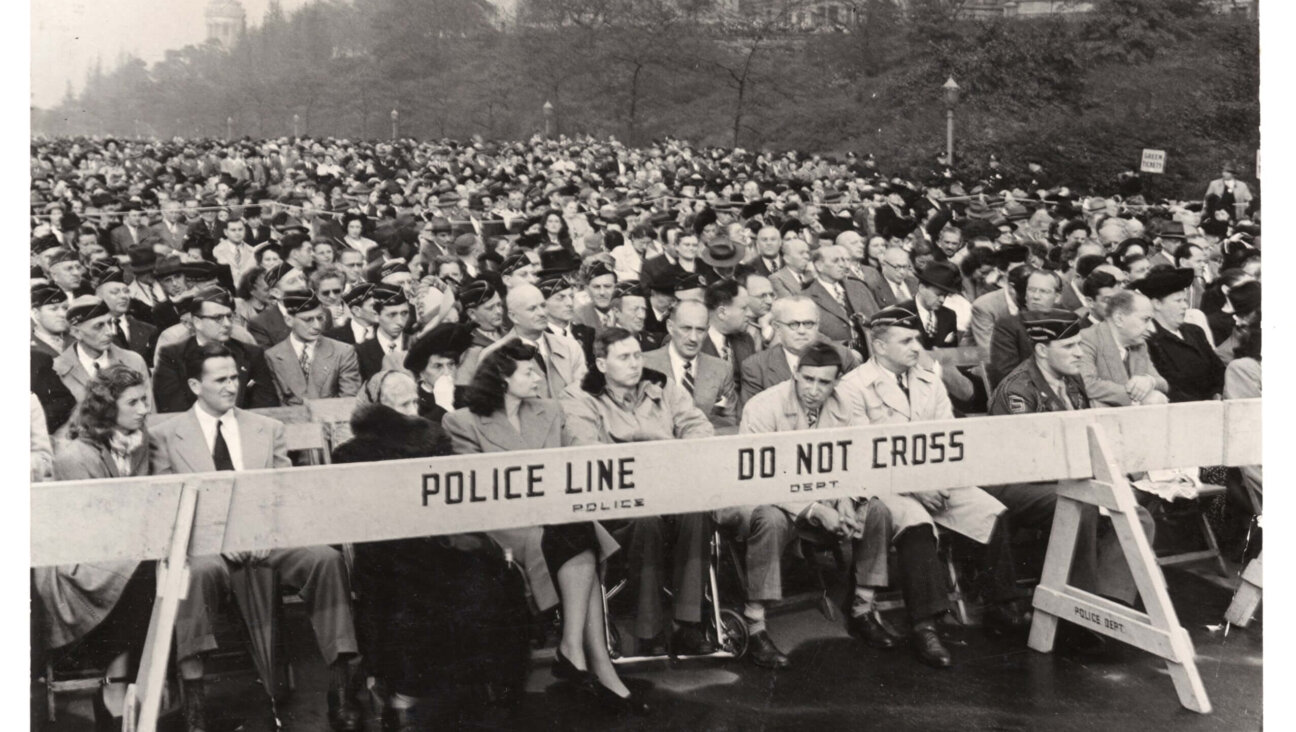Mitt Romney, The Man With No Kishkes

Image by getty images

No Vision: Mitt Romney tries to be all things to all voters. That lack of vision is a handicap in wooing Jewish voters, who prefer a transformational approach. Image by getty images
I’d like to make an election year prediction. If Mitt Romney becomes the Republican nominee for president (still the surest bet in this topsy-turvy contest), American Jews will not vote Republican in larger numbers as the right so often prophesizes.
Where is this confidence coming from? It’s not because of President Obama’s recent muscularity on Israel and Iran, the improving economy, the divisive contraception issue, or even the deeply rooted liberal allegiance of American Jews. It’s the smallness of Romney that makes me feel so sure.
There has been very little indication so far that a Romney presidency would be a transformational one. He has yet to articulate a big vision beyond the vagaries of saying that the election itself is “about saving the soul of America” and offering a set of contrasts with Obama that point unconvincingly to Romney himself as the savior. In his victory speech after the New Hampshire primary, he got as close as I’ve heard him come to laying out what he sees as the big distinctions.
On the economy, a President Romney will “lead us down a different path, where we are lifted up by our desire to succeed, not dragged down by a resentment of success.” Where Obama wants “to ‘fundamentally transform’ America,” Romney said, “We want to restore America to the founding principles that made this country great.”
As that last quote makes clear, he usually rejects the notion that we are a country that needs any big change. He faces nostalgically backward and offers restoration instead, as in, “I want you to remember when our White House reflected the best of who we are, not the worst of what Europe has become.”
On the biggest foreign policy issue of the day, Iran, Romney doesn’t offer an approach that breaks in any way with the one pursued by the president, embracing as well the proverbial “all options on the table.” Addressing the American Israel Public Affairs Committee, Romney said: “Hope is not a foreign policy. The only thing respected by thugs and tyrants is our resolve, backed by our power and our readiness to use it.” But is “hope” any more or less vague than “resolve”? If Romney thinks war is the answer, why doesn’t he lay out his case for it?
The drawn-out Republican primary has only thrown into sharper relief Romney’s inability to provide a large, overarching vision that is an expression of his worldview. Or, to switch to the vernacular, he has displayed a decided lack of kishkes. The contests have forced him to take positions — on contraception, immigration, health care, etc. — that don’t square with his past, and make it look even more like his platform is just a patchwork of whatever he needs to say at any given moment.
I don’t think this will be an easy sell for Jews. If you look at the history of Jews’ political involvement in the Diaspora from the moment of their emancipation in the 18th century, you see a pattern of falling for big ideas that propose to remake the world.
Jewish involvement in the waves of left-wing political activity are well known. They embraced every shade of revolutionary ideology, from communism to bundism to socialism — not without, I should add, sometimes disastrous results (i.e. the Soviet Union). Still, I don’t think it’s too much generalizing to say that Jews responded to a certain type of politics that offered a rethinking of fundamentals, an opportunity to imagine different foundations for society that would be corrective and offer more people the chance to live better.
And this was not, I want to emphasize, a phenomenon only of the left. If there is one distinctly Jewish contribution to America’s conservative tradition it is the arrival of neoconservatism in the 1960s and ‘70s, brought to prominence by a bunch of onetime Trotskyite Jews. Agree with them or not, their ideas for America’s role in the world can hardly be described by any other word than transformational. There is a great deal of idealism in imagining the Cold War as a Manichean struggle of good versus evil or pursuing the democratization of the Arab world. Again, the consequences are often not pretty (i.e., Iraq).
If these grand visions don’t always end well, that doesn’t take away from the fact that Jews seem to be attracted to them. And Republicans hoping to peel off some Jewish voters should remember this. Don’t forget, when we look at modern presidential candidates, it’s only Ronald “morning in America” Reagan who was able to break the 35% threshold and grab 39% of the Jewish vote — and it’s not because he had a sound tax policy.
With this thirst for politicians who want to upend status quos comes, naturally, disillusionment when they don’t. In 1984, that Jewish support for Reagan dropped to 31%. We’re certainly seeing this same dynamic now on the left. Obama set high expectations when he was elected and allowed his most devoted supporters to believe that he was going to bring about a completely new political landscape. Didn’t happen, as we well know. The realities of actually governing deflated much of this hopefulness, and have even obscured Obama’s real achievements, like health care reform.
We have new evidence that Romney, of all politicians, understands very well just how transformative the plan he derisively calls “Obamacare” has been. If you go through enough layers of the Romney palimpsest, you get to an interview in 2006 (uncovered by the website BuzzFeed) in which the then-governor of Massachusetts was asked if his own health care plan, which included mandates that all the state’s citizens be insured, could go national. “I think what we’ve crafted changes the national paradigm,” he responded.
But as they say, that was then, and this is now.
Contact Gal Beckerman at [email protected] and on Twitter @galbeckerman.

I hope you appreciated this article. Before you go, I’d like to ask you to please support the Forward’s award-winning journalism this Passover.
In this age of misinformation, our work is needed like never before. We report on the news that matters most to American Jews, driven by truth, not ideology.
At a time when newsrooms are closing or cutting back, the Forward has removed its paywall. That means for the first time in our 126-year history, Forward journalism is free to everyone, everywhere. With an ongoing war, rising antisemitism, and a flood of disinformation that may affect the upcoming election, we believe that free and open access to Jewish journalism is imperative.
Readers like you make it all possible. Right now, we’re in the middle of our Passover Pledge Drive and we need 500 people to step up and make a gift to sustain our trustworthy, independent journalism.
Make a gift of any size and become a Forward member today. You’ll support our mission to tell the American Jewish story fully and fairly.
— Rachel Fishman Feddersen, Publisher and CEO
Join our mission to tell the Jewish story fully and fairly.
Our Goal: 500 gifts during our Passover Pledge Drive!
























